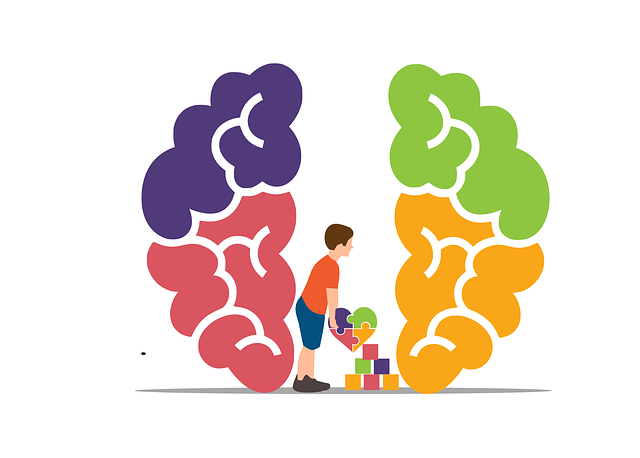Castle Rock Hypnosis Therapy offers a unique approach to mental wellness group facilitation, prioritizing dynamic interactions and safe spaces. Their method includes open communication, trust-building, active listening, structured activities, guided meditation, and risk management planning. This holistic program aims to foster community, empathy, and collective healing through collaborative learning, empowering clients to take an active role in their emotional journeys. By integrating hypnosis techniques, promoting cultural sensitivity, and providing ongoing support, Castle Rock Hypnosis Therapy helps participants build resilience and improve mental health outcomes sustainably.
Mental wellness group facilitation is an art that fosters collective healing. In this article, we explore effective techniques, highlighting unique approaches like Castle Rock Hypnosis Therapy, which offers a distinct perspective on group dynamics. We’ll delve into strategies for creating safe spaces, engaging participants, and measuring progress. From understanding group behavior to promoting sustainability, these insights aim to empower facilitators in their journey towards enhancing mental wellness through collaborative efforts.
- Understanding Mental Wellness Group Dynamics
- Castle Rock Hypnosis Therapy: A Unique Approach
- Facilitating Safe and Supportive Environments
- Techniques for Engaging and Empowering Participants
- Measuring Success and Promoting Sustainability
Understanding Mental Wellness Group Dynamics

In a mental wellness group setting, understanding dynamic interactions is key to effective facilitation. Each individual brings their unique experiences and perspectives, creating a complex web of relationships that can either foster healing or hinder progress. Facilitators play a crucial role in navigating this landscape, promoting open communication and building trust among participants. Techniques such as active listening, reflective questioning, and structured activities help create a safe space where members feel empowered to share their stories and support one another.
At Castle Rock Hypnosis Therapy, we design our Mental Health Education Programs with these dynamics in mind. Our goal is not just to impart knowledge but to build resilience through collaborative learning. By employing tailored communication strategies, we aim to enhance peer connections, encourage empathy, and foster a sense of community that extends beyond the group sessions. This holistic approach ensures that participants not only gain valuable mental health tools but also experience the power of collective healing.
Castle Rock Hypnosis Therapy: A Unique Approach

Castle Rock Hypnosis Therapy offers a unique and innovative approach to mental wellness group facilitation. By incorporating hypnosis techniques, this method aims to enhance emotional healing processes among participants. Through guided meditation and deep relaxation, individuals can explore their minds and gain access to subconscious resources, leading to improved mental health outcomes. The therapeutic environment created by Castle Rock Hypnosis Therapy encourages a sense of safety and trust, fostering open communication and cultural sensitivity in mental healthcare practice.
This approach is particularly beneficial for managing the risks associated with Mental Health Professional’s (MHP) practice. By integrating hypnosis into group therapy sessions, MHPs can provide additional tools for risk management planning. The process facilitates client empowerment, enabling them to take a more active role in their emotional healing journeys. This not only enhances the effectiveness of mental wellness programs but also ensures that cultural sensitivity is maintained throughout the therapeutic processes.
Facilitating Safe and Supportive Environments

Creating a safe and supportive environment is paramount when facilitating mental wellness groups. This involves establishing ground rules that emphasize respect, confidentiality, and active listening from the very beginning. As a Castle Rock Hypnosis Therapy professional, setting clear expectations and ensuring every participant feels heard and understood fosters an atmosphere of trust.
Encouraging open dialogue while maintaining boundaries is crucial for group dynamics. Techniques like Mindfulness Meditation can be integrated to promote self-awareness and emotional regulation. Additionally, conducting regular risk assessments for mental health professionals is essential to anticipate and manage any potential triggers or risks within the group setting, ensuring everyone’s well-being.
Techniques for Engaging and Empowering Participants

Engaging and empowering participants is a key aspect of successful mental wellness group facilitation. Techniques such as active listening and open-ended questions encourage dialogue and create a safe space for individuals to share their experiences. Incorporating Castle Rock Hypnosis Therapy methods can enhance these interactions, fostering a deeper sense of relaxation and self-awareness among participants. By promoting emotional intelligence, facilitators enable members to understand and manage their emotions effectively, which is crucial for personal growth.
Effective communication strategies play a vital role in group dynamics. Facilitators should employ inclusive language and ensure every voice is heard. This can be achieved through structured activities that encourage active participation. Moreover, trauma support services should be subtly integrated into discussions to help individuals process their past experiences and build resilience. These approaches not only empower participants but also contribute to a supportive and nurturing group environment.
Measuring Success and Promoting Sustainability

Measuring success and promoting sustainability are vital aspects of effective mental wellness group facilitation. Using tools like pre and post-session assessments can help track individual progress, with metrics focusing on improved self-care routine development for better mental health, enhanced resilience building, and increased self-esteem improvement. These evaluations not only provide valuable insights for facilitators but also offer participants a tangible way to recognize their growth.
Facilitation techniques should be tailored to foster an ongoing sense of well-being that extends beyond the group setting. Encouraging members to incorporate self-care practices into their daily lives, coupled with regular check-ins and follow-up sessions, can ensure the longevity of positive changes. Castle Rock Hypnosis Therapy, for instance, leverages these strategies to empower individuals in navigating their mental health journeys, offering a sustainable path toward improved emotional resilience and overall wellness.
Mental wellness group facilitation is a powerful tool, offering unique approaches like Castle Rock Hypnosis Therapy, which prioritizes safe and supportive environments. By employing techniques that engage and empower participants, facilitators can foster meaningful connections and significant improvements in mental health. Measuring success through consistent evaluation ensures sustainability, allowing these groups to make a lasting impact on the well-being of those they serve.














